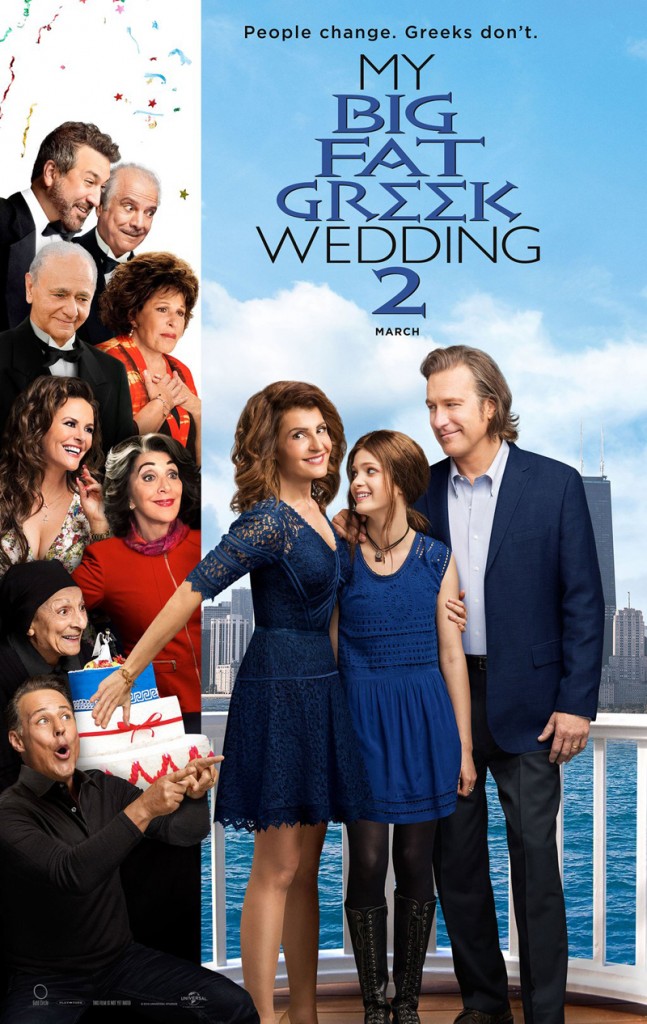By Bonnie Anderson and Dan Webster
We are suckers for family dynamics that portray the realities of life. We don’t know what it is like to be part of a big Greek family, but this film, like the Big Fat Greek Wedding movie before it, has funny and tender moments that seem personally familiar even though we aren’t Greek. But we do have families.
What is missing in this film is believable conflict. If you are part of a family, you know what we mean. There is going to be conflict. We are humans, and perhaps we have families so that we can test out being who we really are and learn some life lessons before we try them out in the big world. Just sayin’.
The story has an important undertone that could get lost on an audience with expectations for fun and games. Don’t get us wrong, there are plenty of fun and games and outlandish scenarios in this film. But times change, even in cultures rife with tradition. Women get the idea that they can have a good life that does not include marriage. College-bound young adults often want to go “away” to school, if they are fortunate enough to have that option. Sometimes, as in this film, families can be over bearing and wonderfully precious at the same time.
The first film, “My Big Fat Greek Wedding” came out 14 years ago and was a box office hit with a $241 million dollar gross. Will the sequel come close? We don’t think so. Why? Because the sitcom-ish stylistic attraction has changed for movie audiences, and the old jokes that get replayed should really have been renewed, but were not.
But still, for a 17 year-old with an “in your face” a big imposing family can certainly put a damper on the development of independence, to put it mildly. Almost all cultures can easily identify with this basic truth. We love our children and want the best for them, and have a very hard time “letting go”. This film touches on that aspect of family life in a sincere, yet understated way. The importance of non-primary family members and the roles they can play in supporting children as they become adults is an important variable demonstrated in this film.
But alas, like the folks in this film, we all find ourselves in families and religious communities where we practice our humanity among people, as Henri Nouwen says, “we would probably never choose for ourselves”. God does have a sense of humor, don’t you think?
Bonnie Anderson is a very active lay leader in her parish, diocese and in the wider Episcopal Church. She is an experienced community organizer and lives in suburban Detroit. Dan Webster is an Episcopal priest in Baltimore, Maryland and a former broadcast news executive. But don’t expect only east coast urban perspectives here. As it turns out, they both grew up in Southern California. They blog about films and faith at Faith Reels

